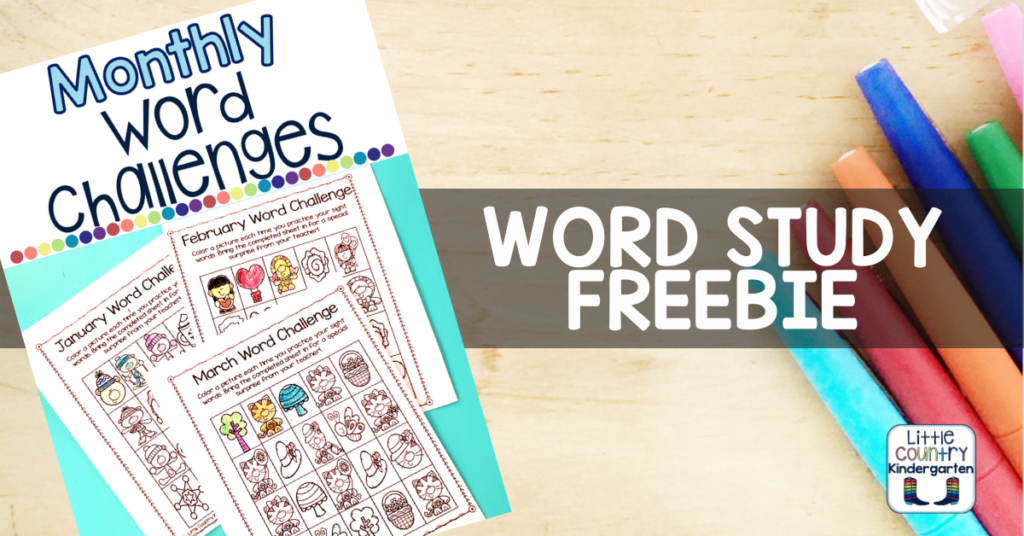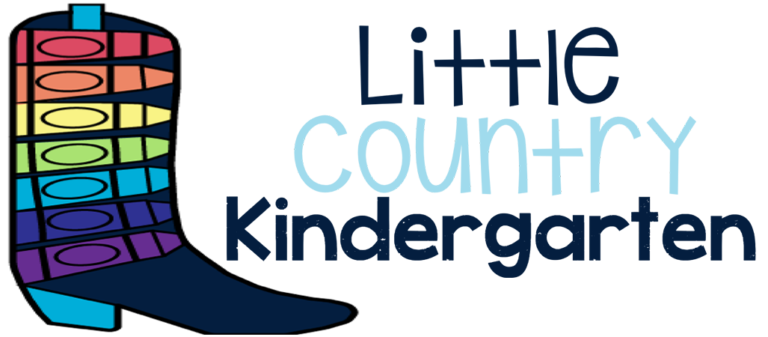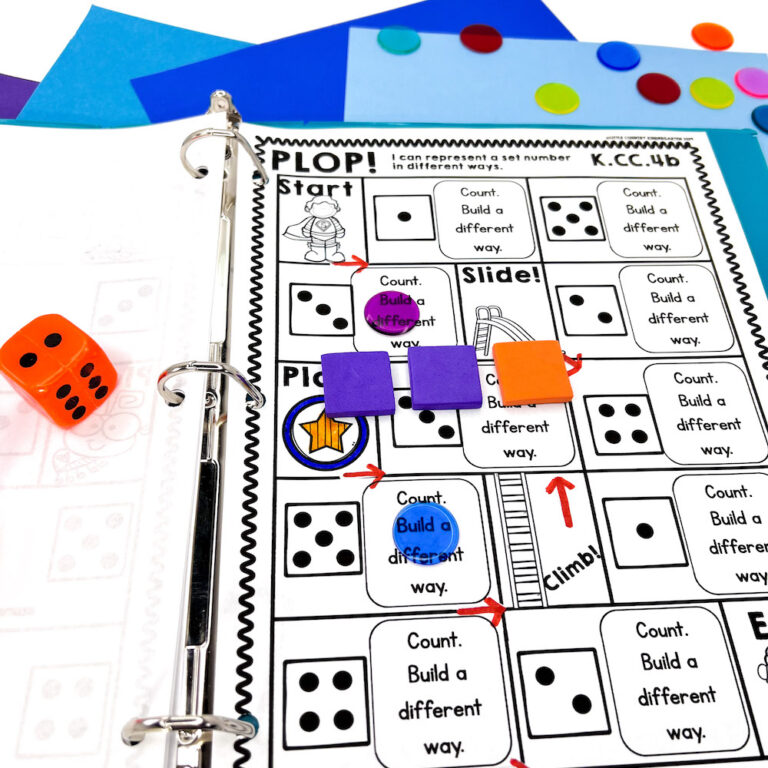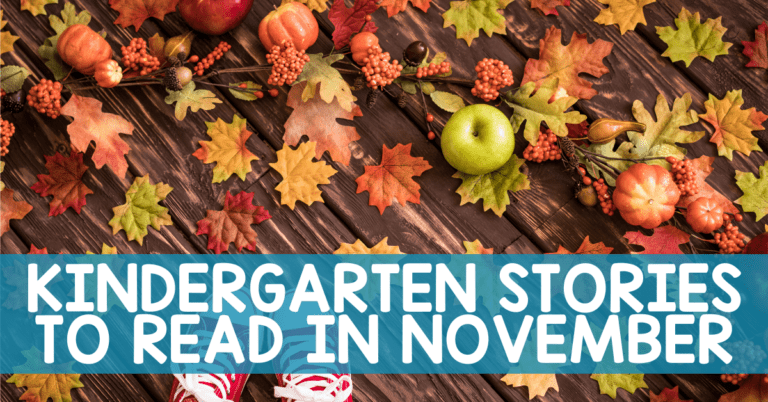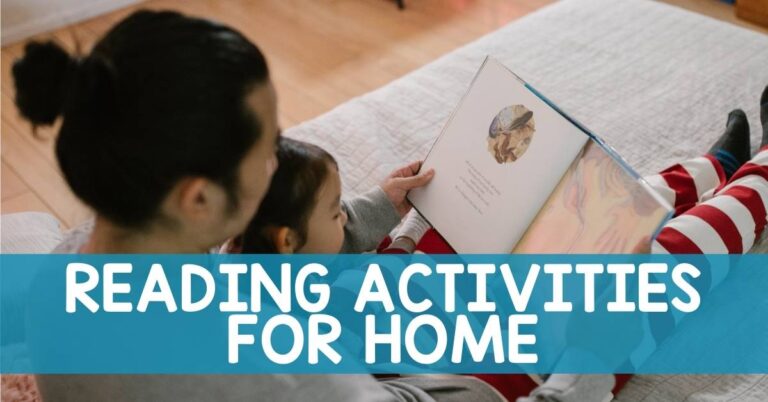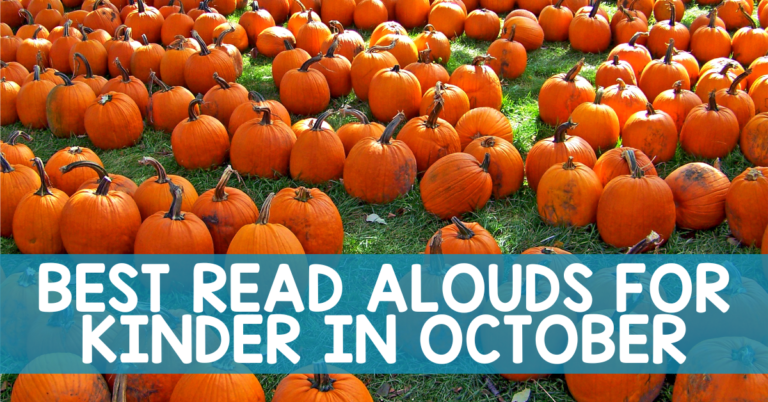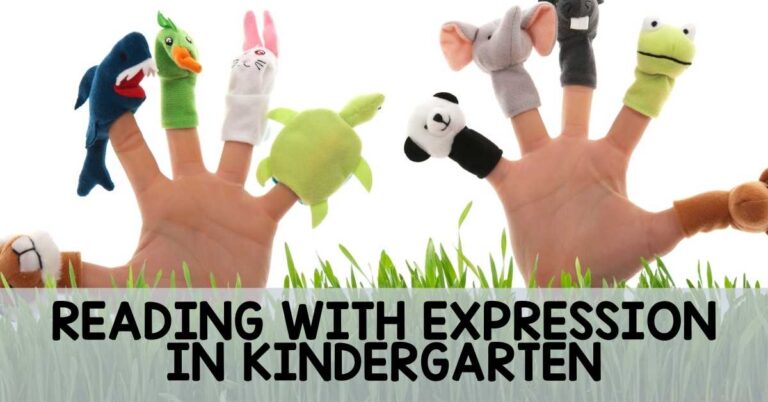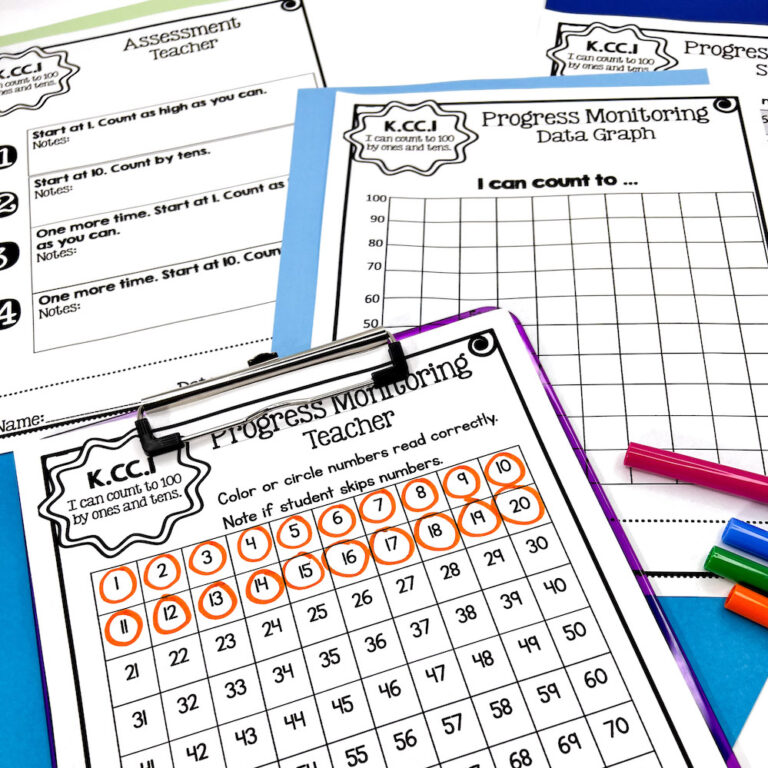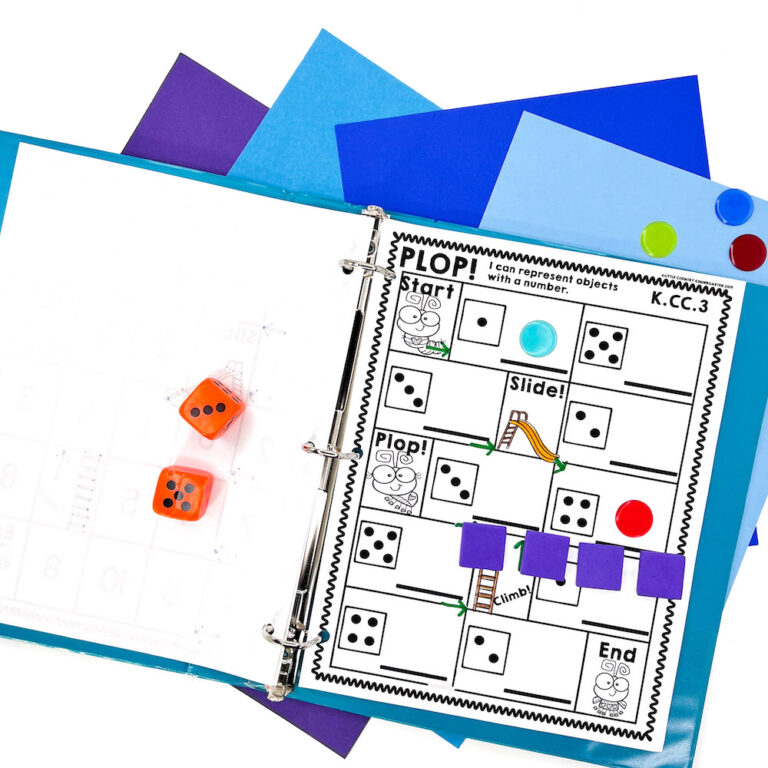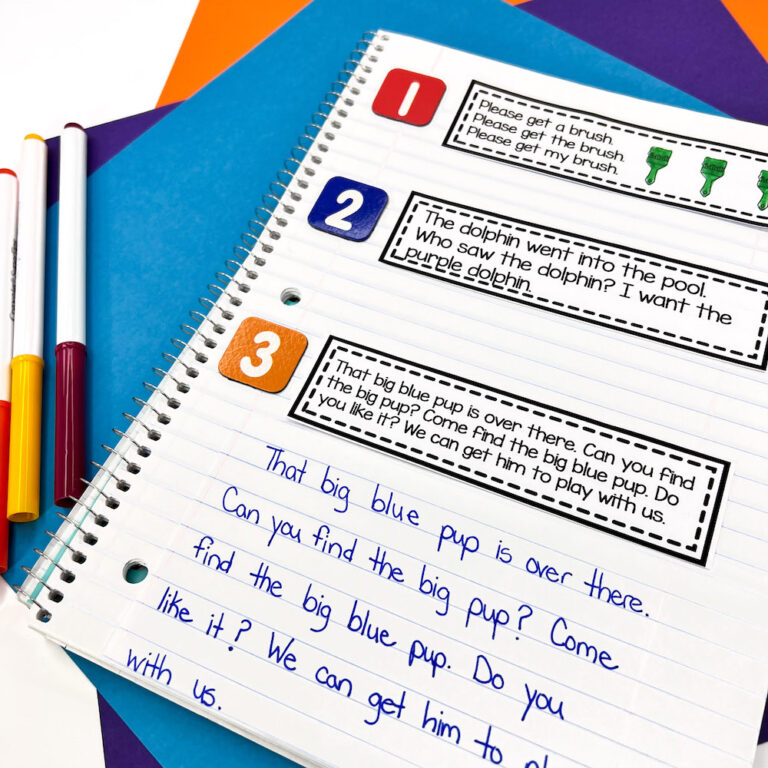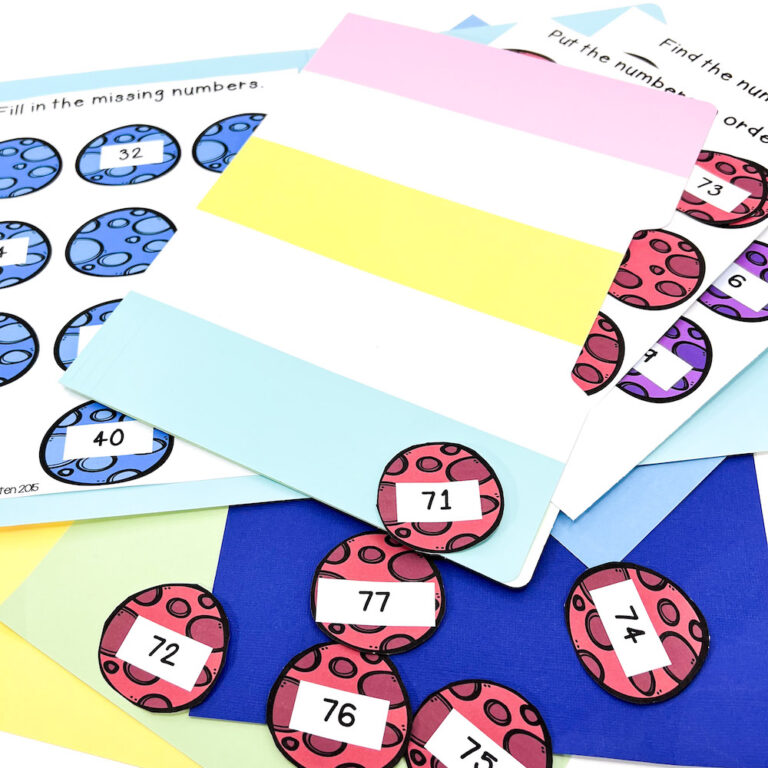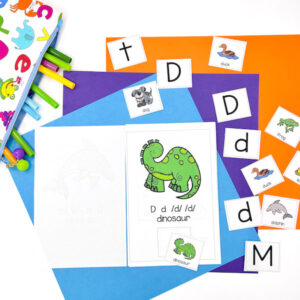My Ultimate Daily Routine
Word study activities for kindergarten are so important! The Science of Reading has changed the way many of us teach reading, but we are still teaching words! My daily kindergarten word study routine is one easy way I do this.
Why are Word Study Activities for Kindergarten Important?
I’m often the first to introduce letters and words to my students. I want them to love learning so I want to make sure it is developmentally appropriate and fun! Taking time to do word study activities for kindergarten first thing every morning emphasizes how important it is as well as makes sure we teach it every day no matter what.
How to Teach Words in Kindergarten
Quick-Start for Word Study Activities in Kindergarten
I have a whole group word mini lesson routine that takes 15-20 minutes daily. This is separate from my small guided groups and individualized work that my students do later. I like to do this routine as part of our morning meeting. It starts our day off with some quick, focused literacy instruction after we have greeted each other and shared.
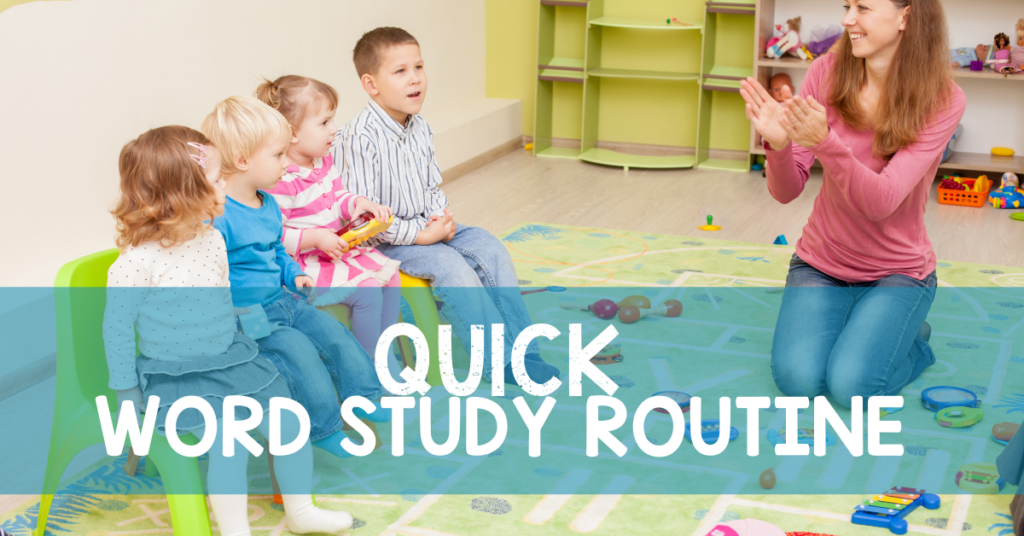
1. Alphabet Warm-Up
I warm up with a focus on the alphabet. During the fall this will be our focus letter, and then this will become a general alphabet song. Some of my students’ favorite songs are Letter Factory, Bounce Patrol, and Have Fun Learning! This is also when I review letters we have learned on our sound wall. I try to point out displays in our classroom as much as possible. I don’t want posters; I want actual learning tools!
2. Manipulatives
My students have individual pencil pouches with manipulatives for our whole group times to keep them engaged and busy. I love for them to be hands on as much as possible! During this time we build our focus letter with pipe cleaners or mini playdoh. Other times we put a 2 piece puzzle together (such as uppercase and lowercase letter or letter and beginning sound word).
Another option is we lace a few letters such as uppercase and lowercase (building cvc words later in the year). I add and switch out sensory bin type items to the pouches throughout the year. Manipulatives are definitely my favorite of the word study activities for kindergarten I do daily!
3. Sight Words
After we are warmed up and engaged I focus on sight words. I’ve learned a lot from LETRS and the Science of Reading and I now focus so much more on phonics. However we do practice those special heart or sight words that are rule breakers as well as learning to read decodable words more quickly by “sight.” Sometimes I simply review them in a slideshow on the SMART Board. We might spell and chant a few in the air or play an Around the World game. Other times I introduce a new center such as Roll & Read, Playdoh Mats, or BOOM during this review.
I also get in quick sight word practice by carrying around words on flashcards. I like to use these as entrance ‘passwords’ when coming and going into the classroom or during other transitions. There are so many little ways to incorporate word study activities for kindergarten throughout the day!
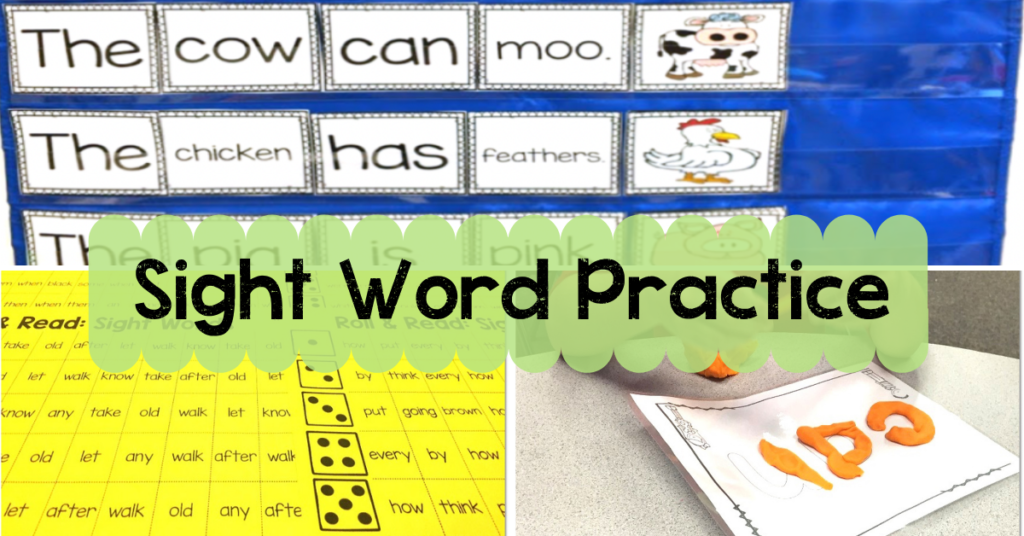
4. Phonics
For my phonics focus I follow our curriculum’s pacing guide so we review anything from word families to vowel teams. I usually incorporate this into our daily morning message or pocket chart sentences. This is on an anchor chart at the front of our class so we can review it often.
5. Writing
Writing is the context for which we learn all of our words! Mondays we usually review our weekly emergent reader or adapted books. Some days we do a quick shared writing with our themed vocabulary for the week. Sometimes I model using the mixed up pocket chart sentences to write. Another option my class loves are word stories! We use our sight words for the week to make silly stories together. Teaching word study activities for kindergarten leads to stronger readers and writers!
6. Poems
Poems are so important in kindergarten! They help students learn the rhythm, patterns, and rhymes which help them become more fluent readers. They are engaging and easy for them to remember through repeated recitations. We have a weekly poem and sometimes it turns into a fun reader’s theatre!
7. Concluding Song
I always love to end with a song. We sing a lot in my class! Sometimes it’s a song about something we need to review like how to make sentences. Other times it’s just a wiggle song to get some bounces out before we start the rest of our day. This one changes up daily!
Take Aways for Word Study Activities for Kindergarten
It may seem like a lot, but one quick activity or song from each area really packs my mini word session to help us review and introduce concepts daily. I like to introduce everyone to things even if they may be working on different levels the rest of the day. Working on phonics rules, basic letters, sight words, and more helps my students have strong word study skills and become better readers. Do you have a daily routine for kindergarten word study?
Continue Word Study Activities for Kindergarten at Home!
Do you want to motivate your students to practice their sight words or letter knowledge at home? I do that with my monthly challenge sheets! Students can color in a monthly themed picture every time they practice their individual words. Sometimes I give a little extra incentive such as cash for the school store (we have a school money and store system) for students that bring in their completed sheets at the end of the month, but you can modify it to fit your needs!
